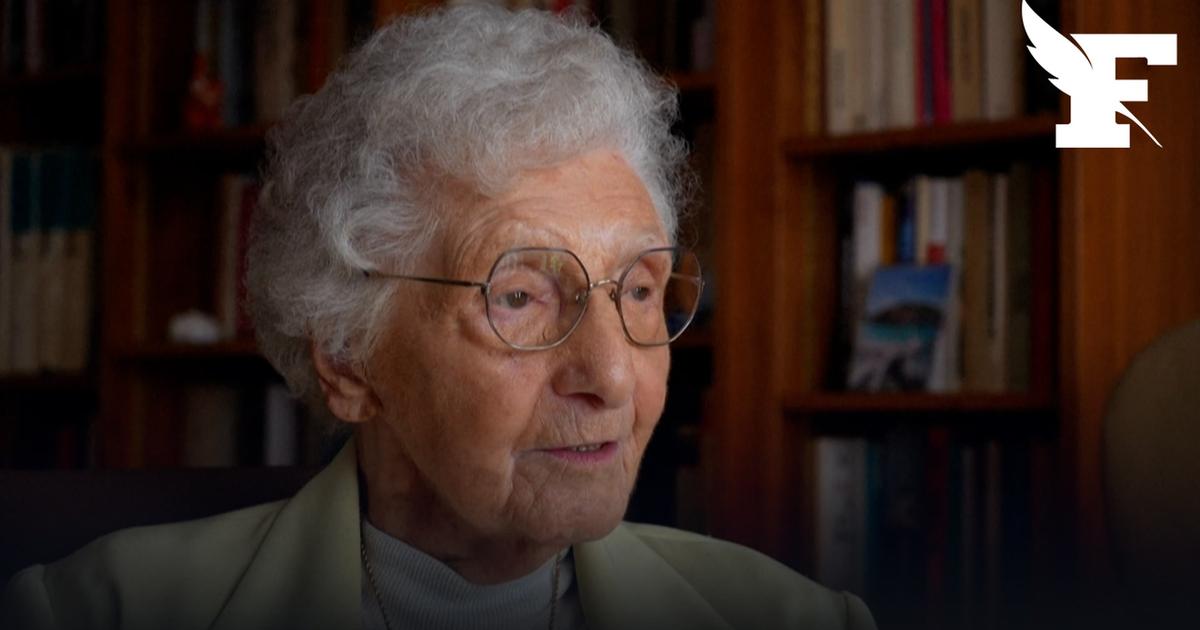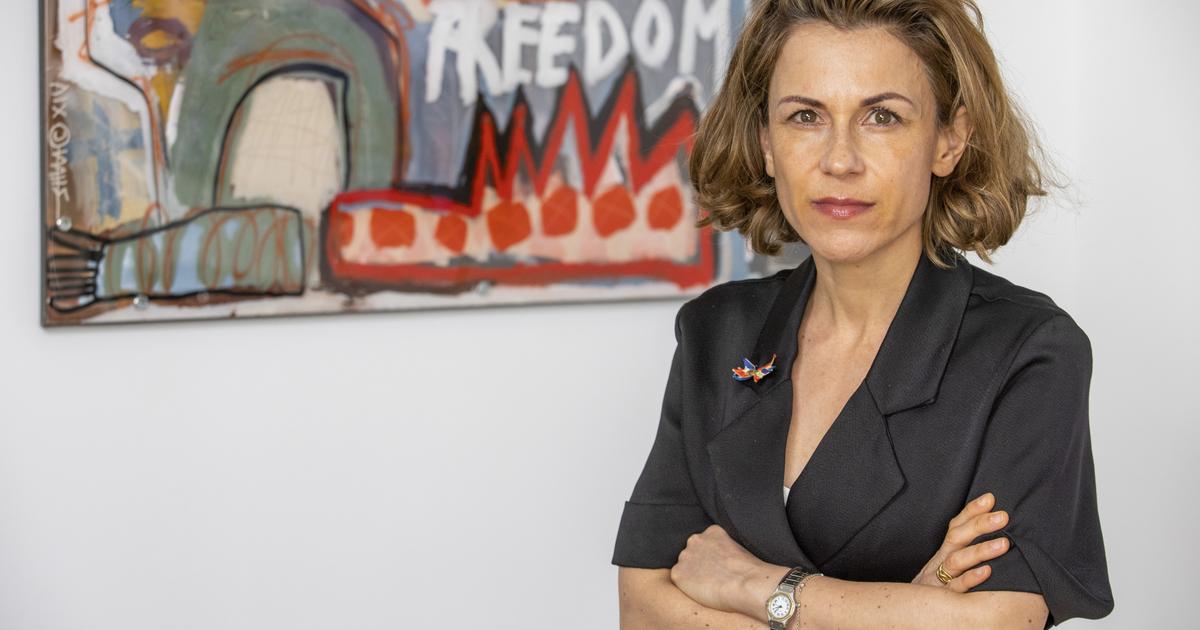Read the video transcript here
Sophie Scholl paid with her life for her courage to protest against war and barbarism.
A white rose is the symbol of the resistance group around the Scholl siblings and some of their friends.
Shortly before her execution in February 1943, Sophie Scholl said:
Sophie Scholl on the day of her execution, February 22, 1943
“What a lovely day and I'm supposed to go. But what matters to our lives if we manage to shake up and wake up thousands of people. "
The young people are in their early twenties and study at the University of Munich.
Sophie Scholl was the last member to join the White Rose in the winter of 1942, because her brother Hans had previously kept her away from the group in order to protect her life.
At the end of June 1942, around 100 copies of a leaflet appeared in Munich.
Numerous addressees in the vicinity of the university will find tightly typed A4 pages in their mailboxes.
Under the title »Leaflets of the White Rose« it says:
Leaflet I of the White Rose
“Nothing is more unworthy of a cultured people than to allow themselves to be 'ruled' without resistance by an irresponsible and obscure instincts ruling clique
.
«
Maren Gottschalk / Sophie Scholl biographer
»Sophie Scholl has two very different sides to her personality. On the one hand, she had this very life-hungry, happy, silly, sporty, very empathic. She was very warm-hearted and on the other hand she had a very brooding, serious side. Very self-critical, almost self-torturing, she questioned herself and repeatedly checked the high expectations she had of herself. And from this combination, perhaps, this unconditional will to be consistent, to act uncompromisingly emerged. And that courage too. "
With the outbreak of the Second World War, discrimination reached a new dimension: The National Socialists believe in the superiority of the Aryan race and want to eliminate everything that supposedly endangers their purity.
With pseudoscientific experiments they try to underpin their teaching.
A girl's head is measured here.
People with disabilities were stigmatized as unworthy of living and mocked in propaganda films.
Hundreds of thousands of them fell victim to the National Socialist dictatorship.
The Wehrmacht's crimes against Jews reach the Scholl family, so that when Sophie Scholl comes to Munich, they are very ready to oppose the system.
Maren Gottschalk / biographer
“As a young girl she was a jagged Hitler Youth girl like everyone of that age or almost everyone. And it was a process that slowly turned her from this Hitler Youth girl to an opponent of the system, so to speak. But that doesn't make you a resistance fighter. I think that a lot of anger and a lot of criticism have accumulated in it, so to speak, over the years since the beginning of the war. She was a very, very harsh critic of the war.
Then there was the fact that a close friend died at the front. That was the first, so to speak, front-dead man for the Scholl siblings. In addition, the father was arrested for calling Hitler a scourge of God. And there was also the fact that the sermons of Bishop von Galen landed in the Scholz mailbox in Ulm at Christmas 1941, so that the idea that texts could be reproduced and thus reached people shook people up, so that was already in the minds of the siblings there. And so the various ingredients were there that she needed to become active. "
On February 18, 1943, Hans and Sophie Scholl distributed flyers against the war and National Socialism at the University of Munich in broad daylight.
The caretaker, an SA man, observes them, holds them tight and hands them over to the university rector.
Shortly afterwards, the Gestapo picked them up.
Interrogation protocol Sophie Scholl, February 18, 1943
"
It was our conviction that the war is lost for Germany and that every human life that is sacrificed for this lost war is in vain."
Maren Gottschalk / biographer
“
She wanted to get involved against this system. She just couldn't watch this country go on with the war, so to speak, again and again, as more and more people die, she found that terrible and she wanted to shake people up. With this leaflet campaign you couldn't do more than shake people up
. "
Just three days after their arrest, Hans and Sophie Scholl and their friend and father of three, Christoph Probst, are tried.
Judge Roland Freisler took over the judgment.
As a participant in the Wannsee Conference, he was one of those responsible for organizing the Holocaust.
He passed about 2,600 death sentences in his hearings, including many show trials in which the sentences were already fixed.
Freisler refused entry to the courtroom for the parents of the Scholl siblings.
In front of him in the courtroom, the 21-year-old spoke undeterred what she was thinking:
Sophie Scholl at the trial on February 22, 1943
"
You all think what we wrote and said, but you don't have the courage to say it."
Judge Freisler rejected all requests for clemency.
Sophie, her brother Hans and Christoph Probst were beheaded a few hours after the verdict.
If it had been up to Bavaria's Gauleiter, they would have been publicly executed.
Interrogation protocol from Sophie Scholl
“You have to do something so that you are not to blame. To do this, we need a hard mind and a soft heart. We all have our standards in ourselves, only we seek them too little. "
The six leaflets that the White Rose distributed between 1942 and 1943 did not achieve the actual goal of overthrowing Hitler.
The war went on, they did not spark an uprising against the dictatorship of the National Socialists.
It would be years before its members were no longer considered traitors in the eyes of the German majority.
Maren Gottschalk / historian
“If we really want to learn something from Sophie Scholl, if we really want to preserve her legacy, then that is something completely different. Then we have to see that we protect this democracy, because it just couldn't express its opinion. She couldn't just go outside and criticize society. And that's exactly what we can do. And that's why we have to do that too. We have to protect our, our democratic freedom, because we have those who are enemies of democracy already in our parliaments
. "








